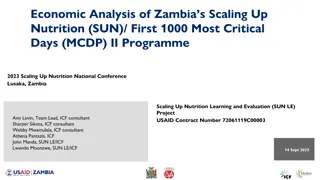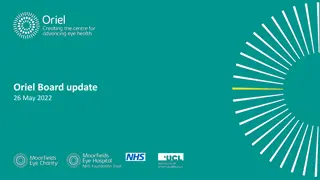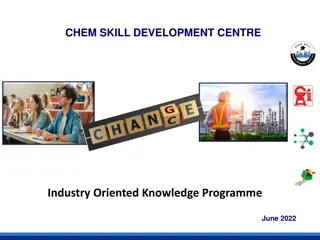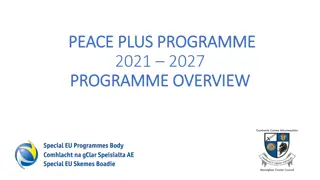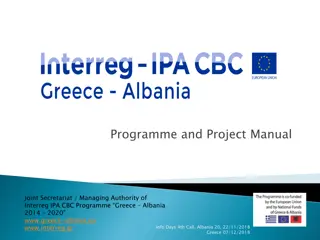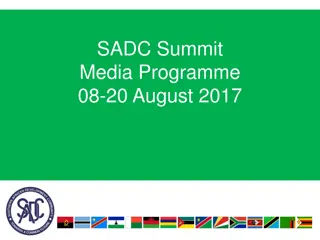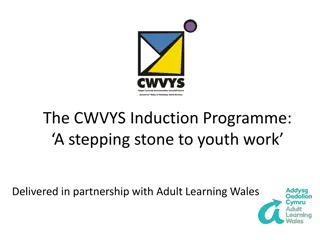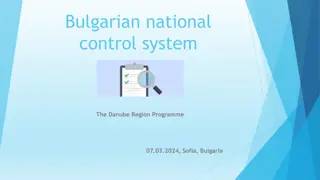Insights and Recommendations for National Programme Development
Explore valuable insights and recommendations shared by various professionals involved in national programme development. From ensuring employer commitment to addressing challenges such as costing models and industry relationships, these perspectives offer guidance on consortium collaboration, stakeholder engagement, and program outcomes. Clear and succinct communication, expertise diversity, and strategic planning are highlighted as key factors for success in this undertaking.
Download Presentation

Please find below an Image/Link to download the presentation.
The content on the website is provided AS IS for your information and personal use only. It may not be sold, licensed, or shared on other websites without obtaining consent from the author. Download presentation by click this link. If you encounter any issues during the download, it is possible that the publisher has removed the file from their server.
E N D
Presentation Transcript
Ann Gilton City of Dublin ETB
Top Benefit and Top Challenge Top Recommendations Ensure employers on Consortium Steering Group are aware of and committed to their role and responsibilities in the development and rollout of a national programme One and the same! Employer involvement at all stages of development, validation, rollout and now governance Prepare role for each participant at the validation and ensure employer leads
Declan Allen School of Management, TU Dublin
Top Benefit Top Recommendations Fantastic opportunity for collaboration with professional and representative bodies, employers and other key industry stakeholders. Ensure diverse membership of consortium. All members must have skin in the game . Regular meetings to ensure momentum. Top Challenge Hearing all voices while at the same time staying on point.
Gerard Mac Michael GMIT
Top Benefit Top Recommendations Dual learning leads to deeper industry engagement relationships Build good relationships with programme manager and with collaborating partners - formalise Top Challenges Ensure costing model can withstand lower numbers of students Convincing all staff that the apprenticeship mode of delivery would meet Programme Outcomes comparable to those of a F/T programme Converting employer commitment to registrations
As a reviewer Where something is required, make sure your approach is clearly and succinctly explained. Don t assume all reviewers are within your field. Be clear and comprehensive, avoiding jargon. Qualifications, skills profile and experience of supervisors should be highlighted Continuity of apprenticeship and plans to remediate disruptions are critically important
Peter Davitt FIT
Top Benefit Recommendations Set realistic programme development timelines. Designing and implementing the QA infrastructure required of a Coordinating Provider is a very significant challenge. In our experience a new apprenticeship can take 18 - 24 months from concept to first delivery. FIT s Tech Apprenticeship programmes, by fulfilling the rigor of QA approval required by QQI, provide school-leavers, job seekers and upskillers with a premium accredited earn and learn alternative route to securing well-paid quality careers in Ireland s thriving Tech sector. Ensure that your apprenticeship funding model is sufficient to support the development, quality assurance and early implementation. Enjoy and celebrate the small successes along the way. Developing apprenticeships is a long road and there will always be more challenges. Top Challenge Being an apprenticeship Coordinating Provider requires FIT to engage with multiple stakeholders (ETBs, Apprenticeship Council, SOLAS, QQI, content providers, employers, training delivery partners, apprentices and the wider community). Managing these important relationships effectively necessitates the investment of much energy, time and dedication.
Peter Rigney ICTU
Katie Haverty ATI Apprentice
Top Benefits Top Recommendations Working and studying at same time Great range of job exposure in the National Gallery of Ireland Level of mentorship Make sure Accounting is career for you. Understand programme and ensure you can commit Be organised Prioritise planning your time e.g. homework early in the week and studying at weekends Top Challenges Time management Managing programme requirements Work, college and studies











